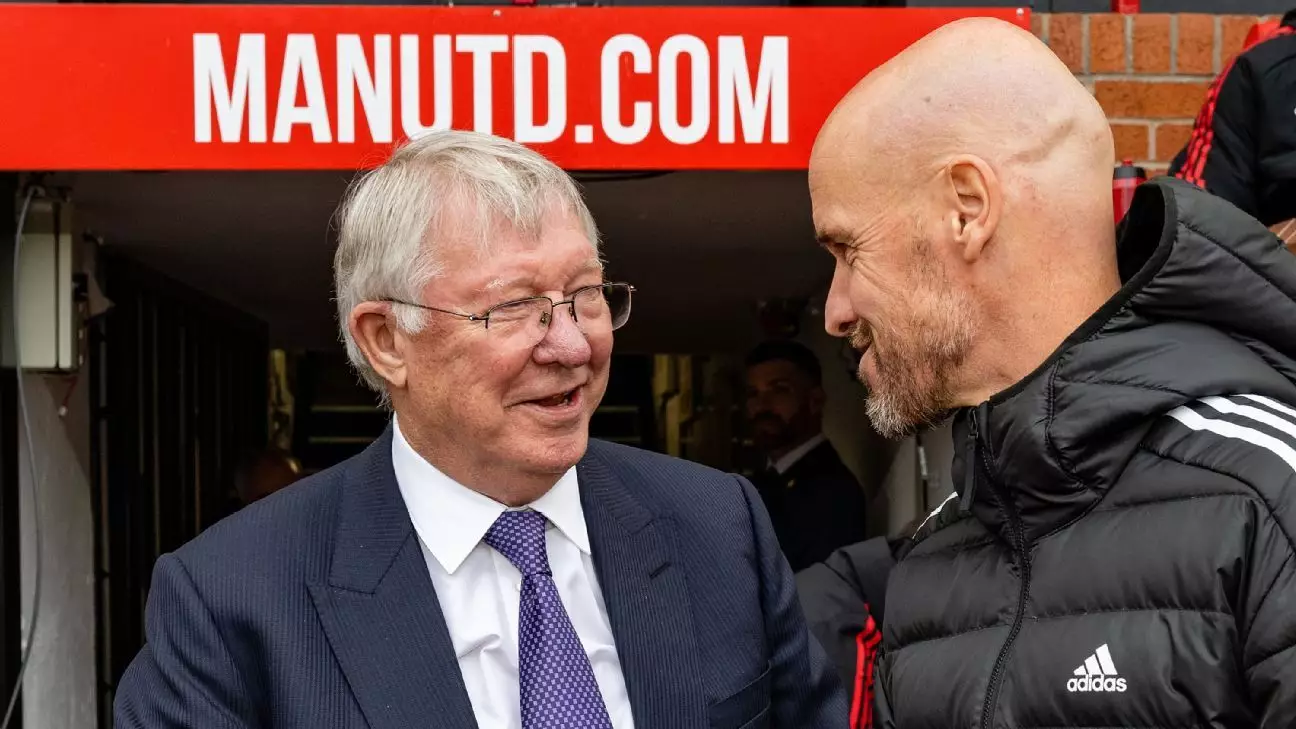Erik ten Hag, the current manager of Manchester United, recently acknowledged the profound impact that the end of Sir Alex Ferguson’s informal role with the club will have. Ferguson, who retired in 2013 after a remarkable 26-year tenure filled with remarkable accolades—including 13 Premier League titles and two UEFA Champions League trophies—has become synonymous with United’s identity. His departure from an ambassadorial role, driven by the club’s need for cost-efficiency, marks an essential turning point for both the organization and the legacy he left behind. Ferguson’s wisdom and experience have been invaluable to the club, and while he may be stepping back, his ongoing availability for advice signifies that his influence will continue to resonate within the corridors of Old Trafford.
Ten Hag’s Reflection on Club Performance
In recent comments, Ten Hag addressed the current state of the team and the challenges they face in reaching the lofty aspirations set by Ferguson. “At the moment, we can’t match the standards he set,” he remarked, acknowledging the gap between past and present. However, he also emphasized a critical point: the team has made progress by securing trophies in recent seasons, highlighting that improvement stands at the forefront of the club’s recovery. Ten Hag’s reflections underscore the delicate balance between honoring the past and striving for future success, specifically noting the club’s struggle with consistency and performance in comparison to their former glory days.
The Road Ahead: Facing Challenges and Building a Team
In light of recent struggles, particularly a series of five matches without a victory, Ten Hag’s focus shifts towards revitalizing the team dynamics. This upcoming match against Brentford carries heightened significance, not only as an opportunity to reclaim form but also as a moment in which the current squad can grow under pressure. The departure of key players like Scott McTominay, who showcased undeniable talent at Napoli, underscores the club’s ongoing struggle with financial sustainability and its impact on team assembly.
Ten Hag has reiterated that decisions based on profit and sustainability rules sometimes lead to painful sacrifices. “I’m very happy for Scott,” he shared when discussing McTominay’s situation, insinuating that his commitment to upholding fair play rules has come with its own set of challenges. This approach indicates that not only must the club focus on winning but also navigate the complexities of modern financial regulations while fostering homegrown talent.
Manchester United stands at a pivotal juncture as it navigates the complexities introduced by Ferguson’s reduced involvement and the subsequent shift in club identity. Ten Hag’s leadership inherently calls for resilience and adaptability, emphasizing the importance of continuous improvement. The road ahead may be marred with challenges, yet the club’s commitment to reclaiming its historical stature is unmistakable. Through cautious optimism and an unwavering dedication to the principles that Ferguson instilled, Manchester United can aspire to restore its former legacy while adapting to the evolving landscape of modern football.

Leave a Reply